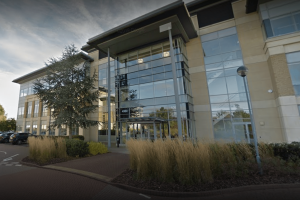Bank of England agrees to hold rates

THE long-running freeze on interest rates continued today as the Bank of England’s Monetary Policy Committee moved to calm fears over a contracting economy.
The MPC has decided to hold interest rates again at 0.5% while the Quantitative Easing programme was also kept at £200bn. Rates have been held at their historic low since March 2009.
Recent growth figures have shown the economy continues to struggle with demand for goods weakening. The latest Manufacturing PMI showed a contraction for the first time in two years and it was feared any change to fiscal policy may cause markets to become more volatile.
Reacting to today’s decision, Mark Smith, regional chairman at PwC in the Midlands, said: “The decision to keep rates on hold is to be welcomed as it will provide Midlands’ businesses with the stability they need in the face of Britain’s slow economic recovery and the wider global debt crisis.
“The Bank has faced a difficult choice – either keep interest rates low to try and aid economic recovery, or raise them to try to cool inflation. However, factors including economic growth in the UK slowing between April and June, inflation falling as retailers cut prices in response to the tightening squeeze on household incomes and news that the manufacturing market has shrunk in July, are among the many reasons why the base rate should be kept low.”
Sara Fowler, Ernst & Young’s senior partner in the Midlands, said the economy remained fragile and the decision to hold interest rates was necessary.
“Last week’s GDP figures showed that the economy grew by just 0.2% in the second quarter of the year and this will have made the decision to keep interest rates at a record low an easy one,” she said.
“A report from the National Institute of Economic and Social Research this week stated that inflation is likely to fall below the Bank of England’s target rate more quickly than expected because of the slow growth of the economy over the next two years.
“Businesses in the West Midlands will once again be pleased that the MPC has resisted the urge to raise interest rates during challenging times for local businesses.”
Business leaders in the West Midlands had urged the MPC ahead of today’s decision to maintain the status quo.
The Birmingham Chamber of Commerce Group had said if the policymakers were minded to make the climate a little easier for firms then they could always consider pumping more money into the economy through a resumption of quantitative easing.
The Coventry & Warwickshire Chamber of Commerce had said companies needed “every bit of help they can get at the moment” if they were to see growth of any kind.
A more optimistic note came from Andrew Connors, area director for Lloyds Bank Corporate Markets in the West Midlands.
He said: “Figures from our work with corporate customers point to something of a recovery in the economy, compared with the first half of the year. This, coupled with a picture of improving business confidence in our own Business in Britain survey, suggests that the economy is not as weak as headline data may suggest.
“However, there are some significant global uncertainties which still face the economy. The ratification of the US debt ceiling deal will help but European sovereign debt crisis and high global inflation remain active risks. Therefore, our view is that it is still too soon to raise rates.”







